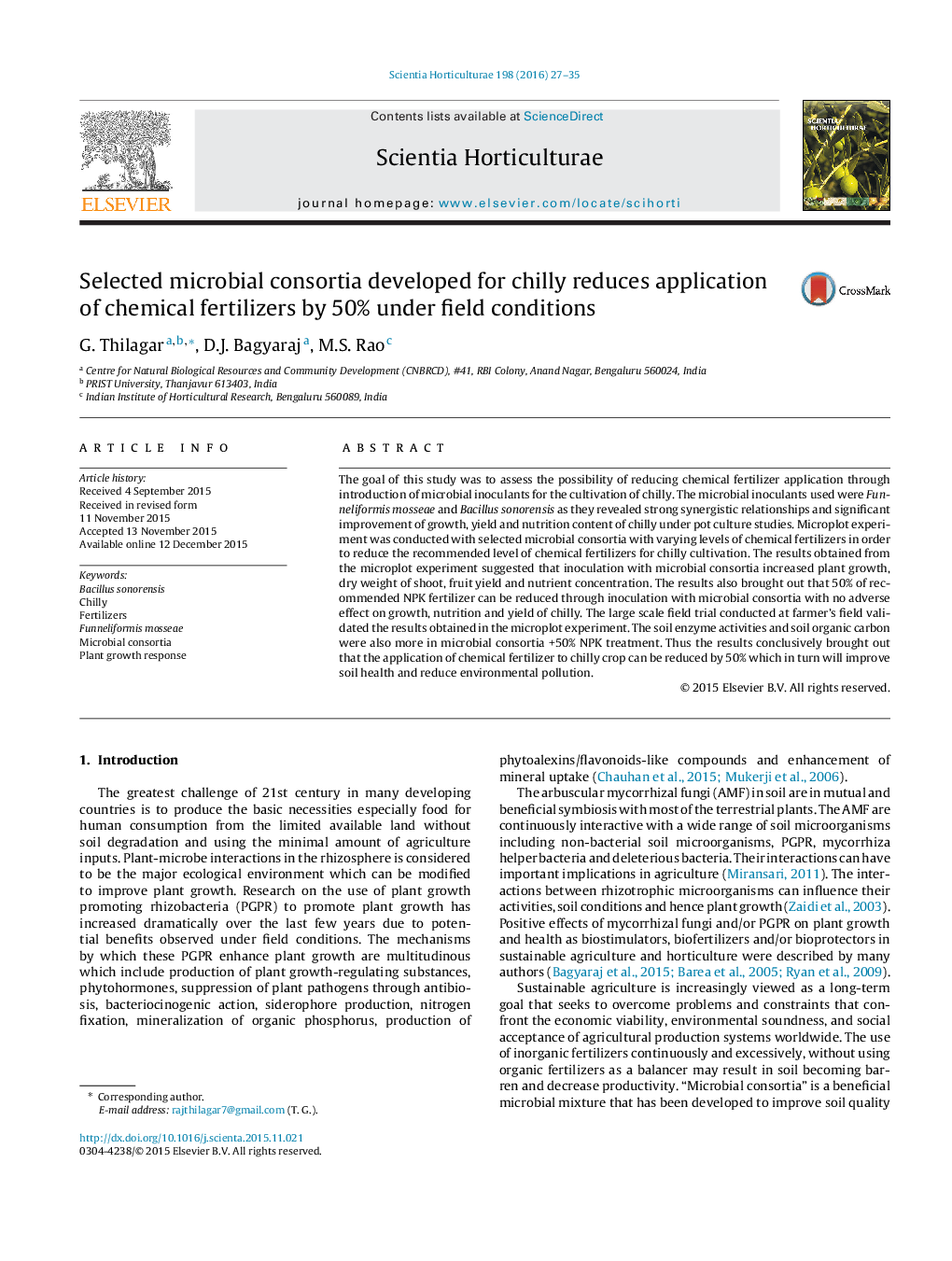| Article ID | Journal | Published Year | Pages | File Type |
|---|---|---|---|---|
| 6406486 | Scientia Horticulturae | 2016 | 9 Pages |
â¢A microbial consortia (MC) for inoculating chilly was developed.â¢A microplot experiment was conducted with MC + varying levels of NPK fertilizers.â¢Results showed that 50% of NPK fertilizers can be reduced through treatment with MC.â¢Large scale field trial validated the results of microplot experiment.
The goal of this study was to assess the possibility of reducing chemical fertilizer application through introduction of microbial inoculants for the cultivation of chilly. The microbial inoculants used were Funneliformis mosseae and Bacillus sonorensis as they revealed strong synergistic relationships and significant improvement of growth, yield and nutrition content of chilly under pot culture studies. Microplot experiment was conducted with selected microbial consortia with varying levels of chemical fertilizers in order to reduce the recommended level of chemical fertilizers for chilly cultivation. The results obtained from the microplot experiment suggested that inoculation with microbial consortia increased plant growth, dry weight of shoot, fruit yield and nutrient concentration. The results also brought out that 50% of recommended NPK fertilizer can be reduced through inoculation with microbial consortia with no adverse effect on growth, nutrition and yield of chilly. The large scale field trial conducted at farmer's field validated the results obtained in the microplot experiment. The soil enzyme activities and soil organic carbon were also more in microbial consortia +50% NPK treatment. Thus the results conclusively brought out that the application of chemical fertilizer to chilly crop can be reduced by 50% which in turn will improve soil health and reduce environmental pollution.
